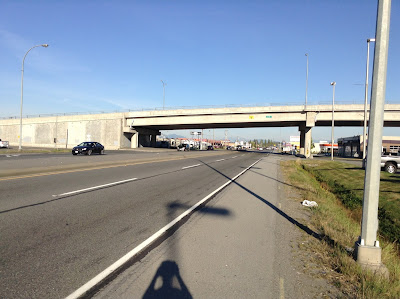Most businesses contribute to the local economy in at least two ways. The first way is by providing local employment. The second way is by paying property tax if they have a retail outlet, warehouse, or other physical presence in a community. These taxes help pay for things such as regional and local roads.
There are some businesses that do not contribute to local property taxes, but heavily utilize resources such as regional and local roads. One such example is Transportation Network Services companies such as Uber and Lyft.
A quick search online of “uber lyft congestion” shows that Transportation Network Services companies can have a negative impact in large urban centre where they operate.
In Metro Vancouver, Transportation Network Services companies have been approved to operate by the province, but currently do not contribute directly for the regional and local roads that they utilize.
To ensure that Transportation Network Services companies have an even playing field within the Lower Mainland, and to ensure that all local governments received some revenue from Transportation Network Services companies, municipalities from Squamish to Chilliwack are in the process of adopting an inter-municipal business license program.
This program will be administrated by the City of Vancouver, and revenue will be distributed amount participating municipalities based on a formula.
Langley City is one of the 25 municipalities that is taking part in this program. Langley City council gave first, second, and third reading to move forward with participating in this program on Monday night.
For Transportation Network Services companies, it means that they only need one business license for the Lower Mainland. For municipalities, it means that we will receive a small amount of revenue which can be used to address some of the negative impacts caused by Transportation Network Services companies.
The proposed fee structure will require that each Transportation Network Services company pay an annual licence fee of $155 plus a per vehicle fees of $150. The per vehicle fee will be reduced to $30 for each zero-emission vehicle, and there will be no per vehicle fee for wheelchair accessible vehicles.
It is expected that this inter-municipal business license program will be refined over time.
At the same Monday night meeting, Langley City council approved expanding our Environment Task Group from seven to eight members.
Council also approved the Deputy Director of Corporate Services to attend the 2020 Government Finance Officers Association International conference in New Orleans from May 16 to 20, 2020.
Finally, council approved sending a letter to federal and provincial Minsters of Health calling for the quick implementation of a Universal Public National Pharmacare program.


No comments:
Post a Comment